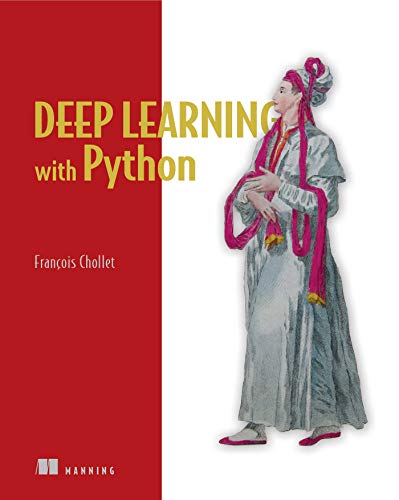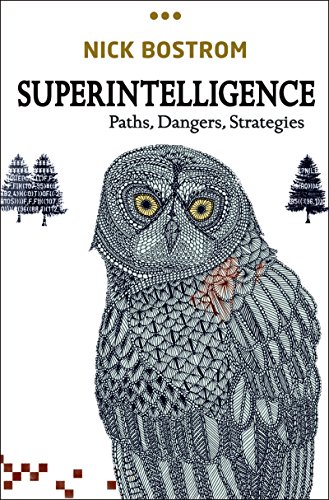20 Artificial Intelligence Books That Define Expert Knowledge
Bill Gates, Satya Nadella, and 18 experts recommend these Artificial Intelligence Books for deep insights and practical mastery.





What if I told you that mastering Artificial Intelligence isn't just about coding but understanding its quirks, risks, and societal impact? AI is reshaping everything from business to ethics, making these perspectives vital. Visionaries like Bill Gates, who highlights caution and promise in AI's future, and Satya Nadella, who urges leaders to rethink strategy in an AI-driven world, bring invaluable insights. Their endorsements underscore why this curated selection of books offers a rare blend of technical depth and thoughtful analysis. While these expert-curated books provide proven frameworks, readers seeking content tailored to their specific background, goals, and AI interests might consider creating a personalized Artificial Intelligence book that builds on these insights.
Recommended by Kirk Borne
Principal Data Scientist, Astrophysicist
“The top #DeepLearning package seen at #AI conferences is #PyTorch — see free online courses & tutorials here: —————— #Python #DataScientists #BigData #DataScience #MachineLearning #NeuralNetworks ——— +Learn more in this book:” (from X)
by Jeremy Howard, Sylvain Gugger··You?
by Jeremy Howard, Sylvain Gugger··You?
Jeremy Howard and Sylvain Gugger, co-creators of the fastai library, bring a unique approach to deep learning that breaks down barriers for programmers without advanced math backgrounds. This book walks you through training models in computer vision, natural language processing, and collaborative filtering using fastai and PyTorch, gradually introducing the underlying theory in an accessible way. You'll learn not just to use deep learning tools but also to understand model mechanics, improve performance, and deploy applications, with chapters covering practical implementations and ethical considerations. If you're comfortable with Python and want to move beyond theory into hands-on AI development, this book equips you with the skills to do so.
Recommended by Samuel West
Poet and cultural commentator
“Nothing makes me laugh as much as these. Neural net recipes by the mistress of the medium, @JanelleCShane. Her book about AI weirdness, "You Look Like a Thing and I Love You" was a Christmas favourite (also contains paint colour algorithms and pick up lines, hence the title)” (from X)
by Janelle Shane··You?
Unlike most artificial intelligence books that emphasize technical complexity or future speculation, Janelle Shane offers a playful yet insightful exploration of how AI actually functions and often misfires. Drawing on her background in electrical engineering and physics, she presents curious experiments like AI-generated paint colors and quirky chatbot pickup lines, revealing the quirks and limitations behind machine learning systems. You’ll gain a clearer understanding of the everyday AI tools shaping our world, from simple algorithms to more complex networks, while appreciating their unpredictable behavior. This book suits anyone curious about the realities beneath AI hype and those who enjoy a blend of humor and technical insight.
by TailoredRead AI·
by TailoredRead AI·
This personalized AI Mastery Blueprint explores the vast landscape of artificial intelligence techniques and concepts tailored to your background and goals. It examines foundational AI principles and advances through specialized topics, providing a structured yet adaptable journey that matches your interests and expertise. This tailored book delves into machine learning algorithms, neural networks, natural language processing, and ethical considerations, focusing on areas you find most relevant. By concentrating on your unique learning objectives, it reveals how complex AI knowledge connects and applies specifically to your ambitions, making deep understanding accessible and engaging.
Recommended by Bill Gates
Co-Founder & Former CEO of Microsoft
“Ray Kurzweil is the best person I know at predicting the future of artificial intelligence.” (from Amazon)
by Ray Kurzweil··You?
by Ray Kurzweil··You?
Ray Kurzweil’s decades of pioneering work in artificial intelligence and technology shine through in this follow-up to his influential book The Singularity Is Near. You’ll explore how exponential growth in AI, nanotechnology, and biotechnology could radically transform human life, from extending longevity to merging our minds with cloud computing. The book offers detailed discussions on topics like nanobots rebuilding matter atom by atom and the ethical implications of AI impacting employment. If you want to understand the technological forces shaping the next few decades and how they might affect society and individual well-being, this book delivers a thorough and thought-provoking perspective.
Recommended by Sean Carroll
Physicist at Caltech and SFI, podcast host
“Computers are capable of feats of astonishing intelligence, while at the same time lacking any semblance of common sense. Melanie Mitchell takes us through an enlightening tour of how artificial intelligence currently works, and how it falls short of true human understanding.” (from Amazon)
by Melanie Mitchell··You?
by Melanie Mitchell··You?
After analyzing decades of AI research and contemporary breakthroughs, Melanie Mitchell offers a grounded perspective that cuts through hype and confusion. Drawing from her background in computer science and collaboration with cognitive scientist Douglas Hofstadter, she explains how current AI systems function, their limitations, and the gap between machine performance and true human understanding. You’ll gain insight into key AI models like neural networks, the challenges of general intelligence, and the ethical questions AI raises. This book suits anyone seeking a clear, nuanced view of where AI stands today and what it realistically promises for the future.
Recommended by Satya Nadella
CEO of Microsoft
“Iansiti and Lakhani have written an important book that explains what's required to rethink the firm and become an AI-first company. Anyone interested in the impact of AI should read this book.” (from Amazon)
by Marco Iansiti, Karim R. Lakhani··You?
by Marco Iansiti, Karim R. Lakhani··You?
When Marco Iansiti and Karim R. Lakhani explored how AI reshapes business, they uncovered that traditional company constraints no longer apply in AI-driven firms. You learn to rethink strategy and operations through data, analytics, and algorithmic decision-making, with examples from firms like Amazon and Airbnb illustrating these shifts. The book breaks down how AI enables scale, scope, and learning beyond conventional limits, providing frameworks to navigate competition between digital and traditional companies. Leaders and strategists aiming to adapt to AI’s economic impact will find concrete insights on transforming their organizations for this new era.
by TailoredRead AI·
by TailoredRead AI·
This tailored book explores the journey of developing AI skills through a focused, step-by-step process designed for rapid mastery. It covers fundamental AI concepts, practical coding exercises, and real-world applications while matching your unique background and specific goals. By concentrating on your interests, it reveals pathways through complex AI topics with clarity and precision, making advanced ideas accessible and actionable. This personalized approach ensures you engage deeply with the essential AI knowledge you need, fostering confidence and competence as you progress through the material.
Recommended by Kirk Borne
Principal Data Scientist at Booz Allen
“🌟📘📊📈Awesome new book >> #DeepLearning Illustrated — A Visual, Interactive Guide to Artificial Intelligence by Jon Krohn Learns #BigData #Analytics #DataScience #AI #MachineLearning #Algorithms #NeuralNetworks” (from X)
by Jon Krohn, Grant Beyleveld, Aglaé Bassens··You?
by Jon Krohn, Grant Beyleveld, Aglaé Bassens··You?
Jon Krohn's extensive neuroscience and machine learning background shines through in this visually rich guide that demystifies deep learning for you. You’ll explore core concepts like artificial neurons, convolutional and recurrent networks, GANs, and reinforcement learning, all supported by clear analogies and hands-on Python code using Keras and PyTorch. The book balances theory with practical examples, from image recognition to natural language processing, making it especially useful if you want to build or understand AI models without getting lost in technical jargon. If you're aiming to gain a solid foundation in deep learning techniques applicable across industries, this book is a solid companion, though it's best suited for those comfortable with basic programming concepts.
Recommended by Daniel Kahneman
Professor of Psychology, Nobel Laureate
“This is the most important book I have read in quite some time. It lucidly explains how the coming age of artificial super-intelligence threatens human control. Crucially, it also introduces a novel solution and a reason for hope.” (from Amazon)
by Stuart Russell··You?
by Stuart Russell··You?
When Stuart Russell challenges the conventional wisdom that superhuman AI is inevitably threatening, he draws from decades as a leading AI researcher and professor at UC Berkeley. In this book, you’ll explore how intelligent machines might be designed to align with human values by embracing uncertainty about our preferences, a concept Russell develops with clarity and wit across chapters that cover AI’s potential, risks, and ethical dilemmas. You’ll gain insight into the AI control problem, understand the limitations of current approaches, and consider frameworks for building machines that remain deferential to humans. This book suits anyone curious about the future of AI, especially technologists and policymakers concerned with its safe development.
by Francois Chollet··You?
by Francois Chollet··You?
François Chollet’s deep involvement in AI and as the creator of Keras shapes this book into a practical guide that demystifies deep learning with Python. You’ll move beyond theory to hands-on skills, exploring neural networks, computer vision, natural language processing, and generative models through clear examples and accessible code. The book assumes you know some Python but introduces Keras and TensorFlow from scratch, making it ideal if you want to build real-world AI applications. It’s especially helpful if you’re keen on mastering the interplay between theory and practice, with chapters like image classification and text generation illustrating core concepts. If you’re looking for quick hacks or beginner-level Python, this might feel intense, but for anyone serious about deep learning, it delivers solid grounding and relevant tools.
Recommended by Satya Nadella
CEO of Microsoft
“Kai-Fu Lee's smart analysis on human-AI coexistence is clear-eyed and a must-read. We must look deep within ourselves for the values and wisdom to guide AI's development.” (from Amazon)
What happens when a seasoned tech executive with deep roots in both Silicon Valley and China examines the future of AI? Kai-Fu Lee, drawing from decades as Google China’s president and a leading investor, maps out how AI will reshape economies and jobs on both sides of the Pacific. You’ll gain precise insights into which professions face disruption, how AI could augment human work, and the social responsibilities tied to this surge in technology. For example, Lee discusses the limits of universal basic income and proposes alternatives grounded in real-world policy. This book suits anyone intrigued by AI’s geopolitical and economic impact, especially professionals navigating tech innovation or policy planning.
Recommended by K Ken Nakamura
Science enthusiast focused on physics and math
“I read this great book by @tegmark Highly recommended for all future generation, for everyone should think about AI. Thus in my opinion, since everyone should know about AI, the first half of the book should be required reading in high school.” (from X)
by Max Tegmark··You?
by Max Tegmark··You?
Max Tegmark, an MIT professor deeply embedded in AI research and cosmology, wrote this book to explore the profound ways artificial intelligence could reshape society and human identity. You’ll discover insights on how automation might affect jobs, ethical dilemmas around autonomous weapons, and the challenges of designing AI systems that are reliable and aligned with human values. The book tackles big questions about AI’s impact on crime, justice, and even consciousness, offering frameworks to think critically about these issues. If you’re looking to understand AI beyond the hype and want to engage thoughtfully with its future implications, this book is a solid choice.
Recommended by Fareed Zakaria
Author of Ten Lessons for a Post-Pandemic World
“Absolutely masterful.” (from Amazon)
by Henry A Kissinger, Eric Schmidt, Daniel Huttenlocher··You?
by Henry A Kissinger, Eric Schmidt, Daniel Huttenlocher··You?
What happens when a former Secretary of State teams up with a tech visionary and an academic leader to examine Artificial Intelligence? Henry Kissinger, Eric Schmidt, and Daniel Huttenlocher combine their vast experience to explore how AI reshapes knowledge, politics, and society itself. You’ll gain insights into the challenges of controlling AI, its impact on jobs and misinformation, and the ethical questions it raises. The book’s chapters guide you through AI’s influence on everything from military drones to creative professions, making it suitable if you want a thoughtful, multidisciplinary perspective on AI’s role in human futures.
Recommended by Terrence Sejnowski
Director, Computational Neurobiology Laboratory, Salk Institute
“Artificial Intelligence Engines will introduce you to the rapidly growing field of deep learning networks: how to build them, how to use them; and how to think about them. James Stone will guide you from the basics to the outer reaches of a technology that is changing the world.” (from Amazon)
by James V Stone··You?
What started as James V. Stone's deep fascination with brain-inspired computing evolved into a clear-eyed tutorial on the mathematics behind deep learning. You’ll gain a solid grasp of key neural network algorithms, from perceptrons to generative adversarial networks, with intuitive explanations paired with rigorous math. Stone doesn’t just teach you the theories; he offers hands-on code examples and detailed appendices that demystify topics like Bayes’ theorem, making it ideal for anyone eager to understand how AI engines function at their core. If you want to build a robust foundation in deep learning’s mechanics rather than surface-level buzzwords, this book fits the bill perfectly.
Recommended by Sonja Mel
Tech enthusiast and internet personality
“This book in the photo is How to Create a Mind - Ray Kurzweil.. I just finished it a few days ago 🤯, if you’re interested in consciousness, how we process our world, AI it’s a must read. Your first gift on audible is free, here!!! -” (from X)
by Ray Kurzweil··You?
by Ray Kurzweil··You?
After decades pioneering artificial intelligence, Ray Kurzweil developed this book to unpack the inner workings of human thought through reverse-engineering the brain. You’ll explore how the mind emerges from neural patterns and what that means for creating smarter machines, with chapters dissecting emotional intelligence and consciousness. This isn’t just theoretical; Kurzweil delves into the implications of merging human and machine intelligence, challenging you to rethink what intelligence really entails. If you’re curious about the intersection of neuroscience and AI, this book offers a detailed roadmap for understanding and innovating beyond traditional algorithms.
Recommended by Bill Gates
Co-Founder & Former CEO of Microsoft
“I highly recommend this book” (from Amazon)
by Nick Bostrom··You?
by Nick Bostrom··You?
What happens when expertise in philosophy and artificial intelligence converge? Nick Bostrom, a professor at Oxford and head of the Future of Humanity Institute, explores this by examining the risks and potential outcomes of machines surpassing human intelligence. You’ll gain a detailed understanding of concepts like the intelligence explosion and the AI control problem, learning how the trajectory of superintelligent systems could shape humanity’s future. This book is suited for those grappling with ethical, strategic, and technical challenges posed by advanced AI, offering a sober analysis rather than sweeping predictions.
Recommended by Kirill Eremenko
CEO of SuperDataScience
“Packed with hands-on cutting-edge AI technology and many real-world practical applications, Hadelin's book is a must-have for AI and Data Science practitioners aiming to be on top of their game.” (from Amazon)
by Hadelin de Ponteves··You?
Drawing from his extensive experience teaching AI through popular online courses, Hadelin de Ponteves offers an energetic and approachable introduction to artificial intelligence using Python. The book guides you through foundational AI concepts like reinforcement learning and deep learning, gradually building your skills with five hands-on projects including a virtual self-driving car and AI for classic video games. You'll learn practical coding techniques with Python, TensorFlow, and PyTorch, plus how to apply AI in real business contexts such as sales and logistics. This book suits anyone with basic math who wants to actively develop AI software rather than just read theory.
Recommended by Erik Brynjolfsson
Professor and economist focusing on technology
“Toby Walsh is one of those rare individuals who combine a deep knowledge of AI technology, a serious interest in its economic and social implications, and a verve for lively and engaging writing. If you want real insights about the coming future of machines that think better and faster than humans in more and more domains, then you need to read this book.” (from Amazon)
by Toby Walsh··You?
Unlike most artificial intelligence books that focus heavily on technical details or futuristic hype, Toby Walsh offers a grounded perspective based on his extensive research and advocacy in the field. He methodically explores current AI capabilities, the social and economic impacts of automation, and the ethical dilemmas posed by autonomous weapons, drawing from his experience engaging with policymakers and scientists globally. You'll find clear discussions in chapters covering AI's effect on employment and the myth of technological singularity, helping you grasp what AI realistically means for society's future. This book suits anyone seeking an informed, balanced understanding rather than speculative predictions, especially those interested in the intersection of technology and public policy.
Recommended by Leilani Münter
Environmentalist and documentary filmmaker
“IMHO “Our Final Invention” is one of the best books ever written on the dangers of AI. I had the pleasure of meeting James for the first time back in 2015, just after I read his book. James is also an accomplished documentary filmmaker.” (from X)
What if everything you thought about Artificial Intelligence was challenged? James Barrat, a documentary filmmaker with years of experience creating content for National Geographic and PBS, explores the urgent risks of AI surpassing human intelligence. You’ll gain insight into the AI control problem, the concept of superintelligence, and the potential consequences of an AI-driven future. The book walks through profiles of tech pioneers and AI systems, offering a sober look at the existential questions AI raises. If you want to understand both the promise and peril of AI’s rapid advancement, this book is a direct and thought-provoking read.
Recommended by Luca Zavarella
Head of Data & AI at iCubed, Microsoft MVP, Author
“This book is like a roadmap that will take you from the ABC's of Generative AI to practical applications that can revolutionize the way we work, study, and even market products! Key Highlights: Start your AI journey with a rock-solid foundation. No jargon, just clear and simple explanations! Enhance your daily life with ChatGPT! Imagine having a virtual assistant for tasks ranging from drafting emails to whipping up delicious recipes. Calling all developers and marketers! Gain insight into how ChatGPT can help with code generation, documentation, A/B testing, SEO, and more. Your toolbox is about to get a major upgrade. Go beyond the basics with enterprise-level applications. Discover how ChatGPT can redefine mission-critical tasks like contract analysis and call center metrics, all powered by Microsoft's Azure OpenAI. Don't just take my word for it; this book provides practical Python scripts and user interfaces, making it a hands-on guide for anyone who wants actionable insights. Fair warning: If you're an AI whiz looking for a deep technical dive, this might not be for you. But if you're new to the subject or interested in application-oriented learning, this is a great resource. Don't miss out on unlocking the full potential of generative AI and ChatGPT!” (from Amazon)
by Valentina Alto··You?
When Valentina Alto first discovered the transformative potential of OpenAI's language models, she crafted this book to bridge the gap between theory and practical application in generative AI. You’ll learn how ChatGPT’s architecture works and how to enhance your productivity by designing effective prompts tailored to your needs—whether you’re a marketer, developer, or researcher. The book walks you through embedding OpenAI models into real projects using Python and frameworks like LangChain, with enterprise scenarios hosted on Azure. If you want to understand and leverage generative AI beyond surface-level use, this guide offers clear insights and hands-on examples without overwhelming technical jargon.
by Rishal Hurbans··You?
What started as Rishal Hurbans' passion for both AI and business mechanics became a clear, approachable guide to core AI algorithms designed for developers with modest math skills. You gain a hands-on grasp of key AI concepts such as intelligent search, evolutionary algorithms, and reinforcement learning, supported by approachable coding challenges like drone optimization and maze puzzles. This book breaks down complex topics like neural networks into simple language and vivid illustrations, making it accessible without sacrificing depth. It's especially useful if you're a software developer eager to understand and apply AI methods without getting lost in heavy theory or math.
Recommended by Andreas Mueller
Principal Research SDE at Microsoft, Scikit-learn Core Developer
“I've been impressed by the wide overview of the book, which really spans the gamut of what AI means, from classification to search algorithms and A/B testing. The book focuses on some standard tools but also branches out to surface some lesser-known libraries that can come in handy. While 468 pages can only give a taste of each topic, the book is jam-packed with examples and serves as a good starting point with plenty of references.” (from Amazon)
by Ben Auffarth··You?
Ben Auffarth brings a wealth of experience in computational neuroscience and data science to this practical guide on AI with Python. You’ll work through recipes that tackle everything from heuristic search and genetic algorithms to deep learning models for text, images, and audio, gaining hands-on skills in tools like TensorFlow and PyTorch. The book doesn’t just teach you how to write algorithms; it also explores deploying models and addresses algorithmic bias and real-world applications in healthcare and insurance. If you’re comfortable with Python basics and want to deepen your AI toolkit with a broad range of techniques, this book offers a well-rounded, example-rich path forward.
Get Your Personal AI Strategy in 10 Minutes ✨
Stop sifting through generic advice. Get targeted AI insights tailored for your goals and experience.
Trusted by AI professionals and thought leaders worldwide
Conclusion
This collection reveals three clear themes: the balance of technical mastery and ethical reflection, the importance of strategic adaptation in business, and the societal implications of AI’s rise. If you’re a developer, starting with Deep Learning for Coders with fastai and PyTorch grounds you in practical skills. Business leaders will find Competing in the Age of AI invaluable for strategic shifts. For broader societal context, Life 3.0 and Human Compatible provide compelling views. Alternatively, you can create a personalized Artificial Intelligence book to bridge the gap between general principles and your specific situation. These books can help you accelerate your learning journey, equipping you for the AI-driven future.
Frequently Asked Questions
I'm overwhelmed by choice – which book should I start with?
Start with 'Deep Learning for Coders with fastai and PyTorch' for practical skills, or 'Artificial Intelligence: A Guide for Thinking Humans' for a clear understanding of AI’s core concepts.
Are these books too advanced for someone new to Artificial Intelligence?
Not at all. Books like 'AI Crash Course' and 'You Look Like a Thing and I Love You' are friendly introductions that balance humor and clarity for beginners.
What's the best order to read these books?
Begin with foundational texts like 'Deep Learning Illustrated', then explore specialized topics such as AI ethics in 'Human Compatible', and finally dive into strategic views like 'Competing in the Age of AI'.
Which books focus more on theory vs. practical application?
'Artificial Intelligence Engines' and 'Superintelligence' delve into theory and risks, while 'Artificial Intelligence with Python Cookbook' and 'AI Crash Course' emphasize hands-on coding and projects.
Are any of these books outdated given how fast Artificial Intelligence changes?
While AI evolves rapidly, books like 'Modern Generative AI with ChatGPT and OpenAI Models' provide up-to-date insights, and classics like 'Superintelligence' remain relevant for understanding foundational risks.
How can I get AI knowledge tailored to my goals and experience?
These expert books offer solid foundations, but to apply AI concepts to your unique needs, consider creating a personalized Artificial Intelligence book that adapts expert insights to your background and objectives.
📚 Love this book list?
Help fellow book lovers discover great books, share this curated list with others!
Related Articles You May Like
Explore more curated book recommendations



















